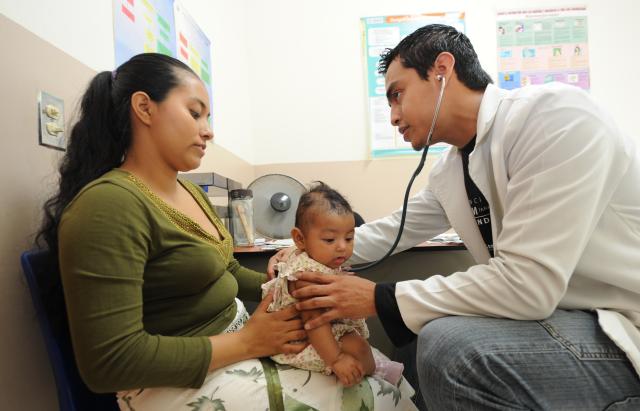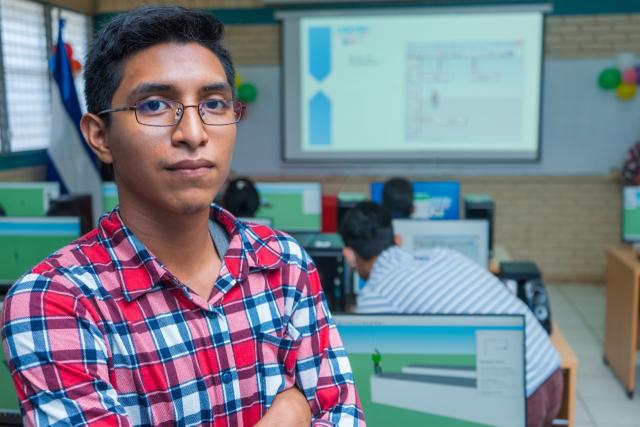In El Salvador, LuxDev supports youth employment and promotes South-South and triangular cooperation.
LuxDev in El Salvador
Luxembourg’s development cooperation with El Salvador began in 1993, following the Chapultepec Peace Accords, as part of the country’s post-civil war reconstruction efforts. Initially, Luxembourg’s support focused on fighting poverty and strengthening democracy. Between 2003 and 2015, cooperation expanded to include poverty reduction, institutional capacity-building and sustainable development. During this period, LuxDev helped implement initiatives in education, healthcare, and rural development, improving living conditions for vulnerable populations and strengthening local infrastructure.
El Salvador’s economic and social progress has reshaped the partnership, leading to a diversification of cooperation efforts. Since 2016, Luxembourg’s focus has shifted to supporting civil society and fostering South-South and triangular cooperation.
LuxDev operates in El Salvador through its regional representation office based in Costa Rica.

Challenges in El Salvador: education, security, and healthcare
As a key economy in Central America, El Salvador faces complex development challenges. Despite notable progress in poverty reduction and economic growth, the COVID-19 pandemic significantly impacted these achievements. Social inequalities persist, with a substantial portion of the population still living in poverty.
The education system struggles with high dropout rates and inconsistent teaching quality, particularly affecting children from low-income families and perpetuating cycles of poverty. While security conditions have improved, they remain a concern for the country’s stability.
El Salvador is leveraging digital transformation and renewable energy innovations to drive economic growth and create new opportunities. The government is also prioritising access to education and healthcare to foster sustainable and inclusive development.
Gallery viewer
Our activities in El Salvador
Luxembourg Cooperation supports El Salvador’s efforts to modernise and diversify its economy. LuxDev implements initiatives focused on youth employment in the digital sector, and South-South and triangular cooperation.
-

Supporting youth employment
Our youth employment initiatives aim to enhance employability through comprehensive services aligned with labour market needs. These programmes also encourage self-employment and entrepreneurship by providing incubation and acceleration support.
-

Promoting South-South and triangular cooperation
We assist El Salvador in positioning itself as a key player in regional cooperation. Our support focuses on strengthening institutional capacities to facilitate knowledge exchange, best practices, and technology transfer for national institutions and Salvadoran communities.
Key figures in El Salvador
-
EUR 1,887,725
disbursed in El Salvador in 2025





